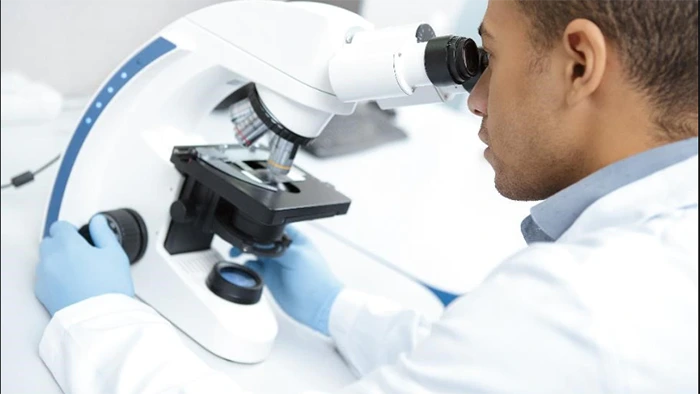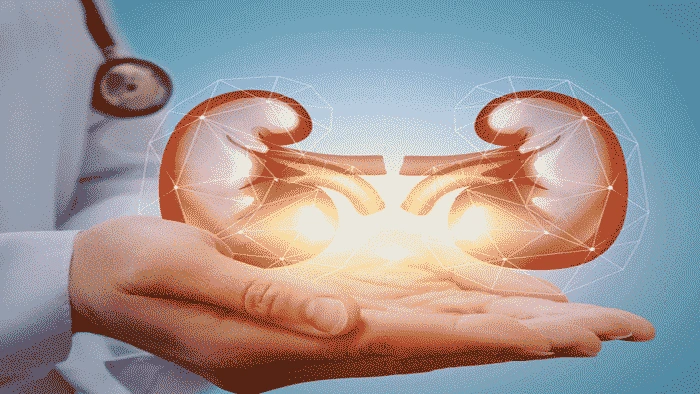Generally, humans can live normally with just one kidney, as one has more functioning renal tissue than is needed to survive. Only when the amount of functioning kidney tissue is greatly diminished does one develop chronic kidney disease.
Kidneys play many important roles in maintaining the health of the human body. The most important function of the kidney is to filter waste products from the blood and remove them with urine. The kidney also helps maintain the levels of water and several essential minerals in the body. Apart from this, the kidneys are also considered very important for producing the following in the body:
- Vitamin D
- Red blood cells
- Hormones that regulate blood pressure.
There can be many reasons for the kidneys not working effectively. Kidney function tests help the doctor check kidney function and monitor it over time. Several types of blood and urine tests can provide information to the doctor about kidney function. Kidney function test is also known as the Renal function test. eGFR is the most accurate test for kidney function. In this article, we’ll look at all the tests that help diagnose kidney disease, including the eGFR.
What is a kidney function test?
A kidney function test is done to know whether all the parameters of the kidneys are within normal limits or not. With the help of a kidney function test, the level of blood urea, creatinine, uric acid, and other minerals can be detected. The main tests are as follows:
- Creatinine level in the blood
- Estimated Glomerular Filtration Rate (eGFR)
- Blood urea nitrogen (BUN)
Some other tests may include:

- Urine test to measure the products of metabolism
- Checking electrolytes in the blood – usually sodium, potassium, chloride and bicarbonate,
- Complete blood count test
Why is a kidney function test done?
There are many reasons why kidney function tests may be needed, such as:
- As a general health checkup
- To evaluate kidney function and to diagnose and test for diseases of the kidney
- To monitor progressing kidney failure
- If you suspect that there is a lack of water in the body when the level of urea increases.
- If you suspect kidney damage.
- Before and after starting any drug treatment, as some drugs have side effects that affect the kidneys. Hence kidney function is checked before and after starting these medicines.
Before Kidney Function Test
- If you consume any type of medicine or supplement, tell the doctor about all of them before getting the test done.
- Do not eat large amounts of meat before a creatinine clearance test and do not exercise vigorously before collecting a urine sample for the test.
- A diet high in meat may increase serum creatinine and creatinine clearance levels for a short period of time.
- A high-protein diet or dehydration can increase blood urea nitrogen (BUN) levels.
- Exercise can increase the level of creatinine clearance.
- There are some medications that can affect BUN levels, serum creatinine, and creatinine clearance.
During Kidney Function Test
During the test, the technician removes a blood sample from the patient’s body. In this process, a bandage or elastic band is tied to the patient’s upper arm. After that, where the injection needle is to be inserted, that place is cleaned with antiseptic and then the needle is inserted into the vein from inside the skin. A blood sample is then drawn through the needle, collected in a syringe, vial, or tube attached to the needle, and taken to a laboratory for analysis.
When the needle is inserted, a slight sting or pain may be felt. After removing the needle, the doctor puts a piece of cotton or bandage on that place, so that bleeding is stopped. A blue spot may appear at the injection site for a few days, although this does not cause severe and prolonged pain.
What is done after a kidney function test?
- After the test is done, you are taken out of the testing facility.
- The medicines and food items that were stopped before the test are resumed as per the instructions of the doctor.
- Blood may collect or clot at the needle site, a condition known as a ‘hematoma’. This is a harmless condition and gets better on its own.
Risk factors:
The risks associated with taking a blood sample for the test are minor. Taking a blood sample from some people can be more difficult than others.
The risks associated with taking a blood sample are minor, but may include:
- Heavy bleeding
- Fainting or dizziness
- Hematoma (collection of blood under the skin)
- Infection (minor infections can occur at the needle site)

Kidney Function Test Results and Normal Range
Normal Result (Blood test):
- Serum Creatinine :
- Men: 0.7 to 1.3 mg/dL (61.9 to 114.9 µmol/L)
- Women: 0.6 to 1.1 mg/dL (53 to 97.2 µmol/L)
- BUN: 6 to 20 mg/dL
- Creatinine clearance: 120-140 mL/min
- GFR : 90 to 120 mL/min/1.73 m2
Urine Test:
- Appearance: Normal urine should be light yellow or colorless
- Chemicals: Results should be negative for ketones, leukocytes, bilirubin, urine bilirubin, and nitrate.
- Microscopic: The urine sample should be free of any crystals, bacteria, and yeast. The red blood cell count should be less than 2 RBCs and the white blood cell count should be less than 2-5 WBCs/HPF.
- Imaging Tests: A CT scan of the kidneys provide detailed information about the type and size of all the organs of the urinary system. It also includes the right and left kidneys, ureters, bladder, and urethra.
Your blood and urine samples are sent to a laboratory for analysis. Doctors look at test results to rule out kidney disease or other abnormalities.
Blood Test
- Serum creatinine – Creatinine is a waste product that comes from dietary meat proteins and from normal muscle breakdown. Creatinine levels in the blood can vary and each laboratory has its own normal range. The normal range in many laboratories is 0.6 to 1.2 milligrams/deciliter (mg/dl). Levels higher than this mean that the kidney is not working properly. As kidney diseases progress, the level of creatinine in the blood starts increasing.
- Blood Urea Nitrogen (BUN) – Urea nitrogen is also produced by the breakdown of proteins in foods in the body. A normal blood urea nitrogen level is 7 to 20 milligrams per deciliter (mg/dl). As kidney function declines, blood urea nitrogen levels rise.
- Estimated Glomerular Filtration Rate (eGFR) – The estimated glomerular filtration rate (eGFR) provides guidance for kidney function. Although the level of creatinine in the blood is also a guide to kidney function, the estimated glomerular filtration rate gives a more accurate result. The lower its value falls, the more the severity of kidney damage increases.
- Serum electrolytes (dissolved salts) – Abnormal levels of Serum electrolytes can be caused by a kidney problem.
Urine Test
Urine color: Dark-colored urine can be a sign of some sort of underlying infection. Red or brown urine can be a sign of a urine infection or chronic kidney disease. Orange-colored urine is also seen in some people, usually due to the consumption of TB drugs like rifampicin.
Chemical :
- A positive result of the patient’s ketone test is considered a sign of a serious disease called diabetic ketoacidosis. In this condition, tests like serum sodium, potassium, calcium, and chloride are recommended.
- The presence of leukocyte esterase and nitrites in the urine suggests a bacterial infection.
- High levels of glucose in the urine can be observed in diabetes mellitus and during pregnancy.
- Higher than normal levels of protein in urine can be a sign of diabetes mellitus, fever, nephritic syndrome, multiple myeloma, and some other diseases.
Microscopic test:
- The presence of RBCs can be a sign of sickle cell anemia, renal cell carcinoma, prostatic hyperplasia, kidney stones, and other problems.
- An increase in WBC indicates that the body is fighting an infection. And the presence of crystals can be a sign of gout or kidney stones.
Imaging Tests :
Through imaging tests, it is easy to know about problems like tumors, stones and problems with blood supply to the kidneys.
When to get a Kidney Function Test?
If you are feeling some signs and symptoms related to kidney problems, then you should get a kidney function test done. Signs and symptoms associated with kidney problems can be:
- High blood pressure
- Blood in urine
- Frequent urination
- Difficulty urinating
- Painful urination
- Swelling of hands and feet due to fluid build-up in the body

